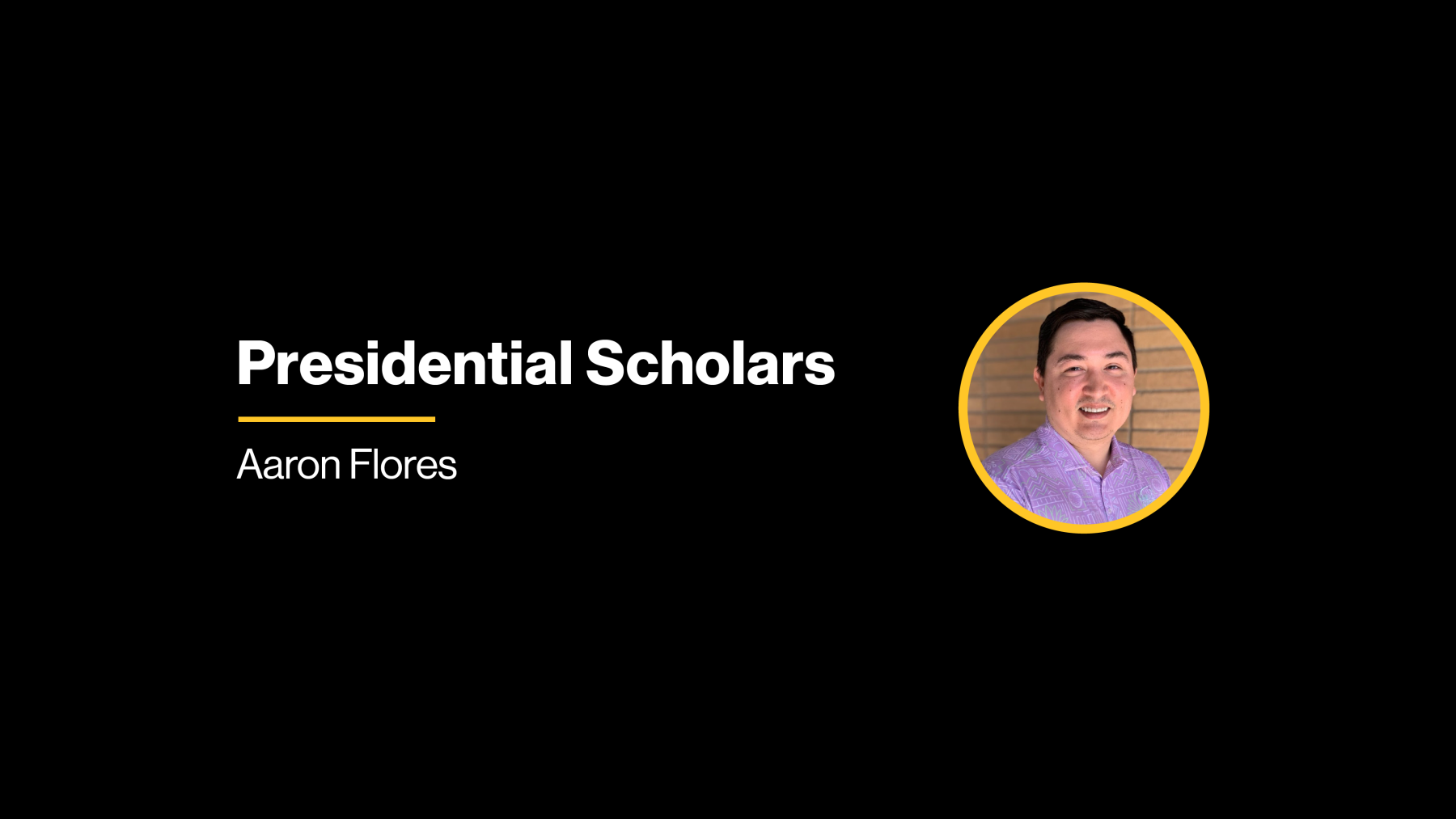
Presidential scholar uncovers heating and weather-hazard inequities in the Valley
Name: Aaron Flores
Twitter: @aaronbflores
Please introduce yourself, where are you from?
My name is Aaron Flores, I identify as a Hispanic Tejano and I'm from a very small rural town in West Texas. I am currently a Presidential Postdoctoral Research Scholar in the School of Geographical Sciences and Urban Planning and in August I will start as an Assistant Professor at Arizona State University.
Where did you go to school before ASU? What was your major and minor?
Before joining ASU, I was a PhD student at the University of Utah in Salt Lake City for four years in the Department of Geography. While there, I researched environmental justice, focusing on issues such as flooding, extreme heat or air pollution — and how that affects people differently based on race/ethnicity or socioeconomic status. Before that, I earned my master's and bachelor's degrees at Texas Tech University in Lubbock, Texas, two hours away from my hometown. There, my research focused on extreme heat, using remote sensing to look at the hottest places in the city. For my dissertation research at the University of Utah, I focused on inequities in federally-overlooked 100-year flood zones in the United States (these are flood zones not formally recognized by the federal government). I accessed how many people live in the 100-year flood zones and the demographic characteristics of those communities. Since joining Arizona State University, I have started working on more heat-related projects. In one project, my colleagues and I are trying to determine if heat inequities are getting worse over time in the Phoenix metropolitan area.
What’s something you learned during your professional or academic journey that surprised you or changed your perspective?
I wasn't very interested in science in high school. One reason for this lack of interest was because I attended such a small school, so I wasn't taught by any scientists. Going to college changed my perspective because I started learning from actual scientists. Plus, seeing people that looked like me, who were also scientists helped me along the way. I had a light bulb moment that I could be a scientist one day, regardless of where I came from or my skin color.
What types of problems do you work on? Why do you think they are important?
The main reason I think that some of the issues I look at are important is because of climate change. Climate change is causing hazards like flooding to be more intense and severe — the same with heat. Also, I think it's important from a moral perspective because we see communities being affected unevenly. These communities may not have the resources that other communities have to mitigate or adapt to risks. At all levels of society, we must recognize these issues and create solutions.
Why do you think these problems exist?
When looking at environmental justice issues, there are root causes and a simple answer is structural racism. Since the start of U.S. history, there has been segregation; but in the 1930s, redlining, blockbusting and different forms of racial discrimination led to people living in hazardous areas.
There are also more complex answers in terms of specific hazards. As for flooding, politics are at play: real estate developers don't want their new communities to be in the 100-year flood zone because that might dissuade people from living there, which could cost them revenue. [It could also put politicians at risk in regard to voting]. There's also the cost of living in flood-prone areas — it tends to be cheaper. Therefore, socially vulnerable populations tend to migrate toward those areas because that's all they can afford; they can't afford to think about the risk. They have to live there anyway because they don't have a choice.
What are some of your long-term professional goals?
In the long run, my priority is to make my scholarly work more impactful to an audience outside the academic community. My ideal long-term goal is to obtain a research-intensive faculty position and simultaneously collaborate in advocacy groups or advise politicians and decision-makers. I hope that my work can benefit our society more directly.
Please tell us about your experience as a Presidential Scholar!
Being a Presidential Postdoctoral Fellow gave me first-hand advice and mentoring from successful scholars from various disciplines and academic backgrounds. Above all, it helped me envision where I want to direct my academic and professional career. This experience has also given me a lot of flexibility to expand my research agenda on environmental justice. I’ve been able to utilize a lot of time to focus on my current and ongoing projects without having to teach. I feel very grateful for having had the opportunity to be a Presidential Scholar.
Learn more about Presidential Scholars
More stories from the Graduate Insider

Graduate funding deadlines for Fall

How to feel confident in your next interview
Let’s be honest, interviews can feel nerve-wracking. Your palms sweat, your heart races, and you start to second-guess whether you even remember your own name. But here’s the good news: with a little preparation, you can walk into (or log onto) your next interview feeling calm, collected, and ready to shine.
